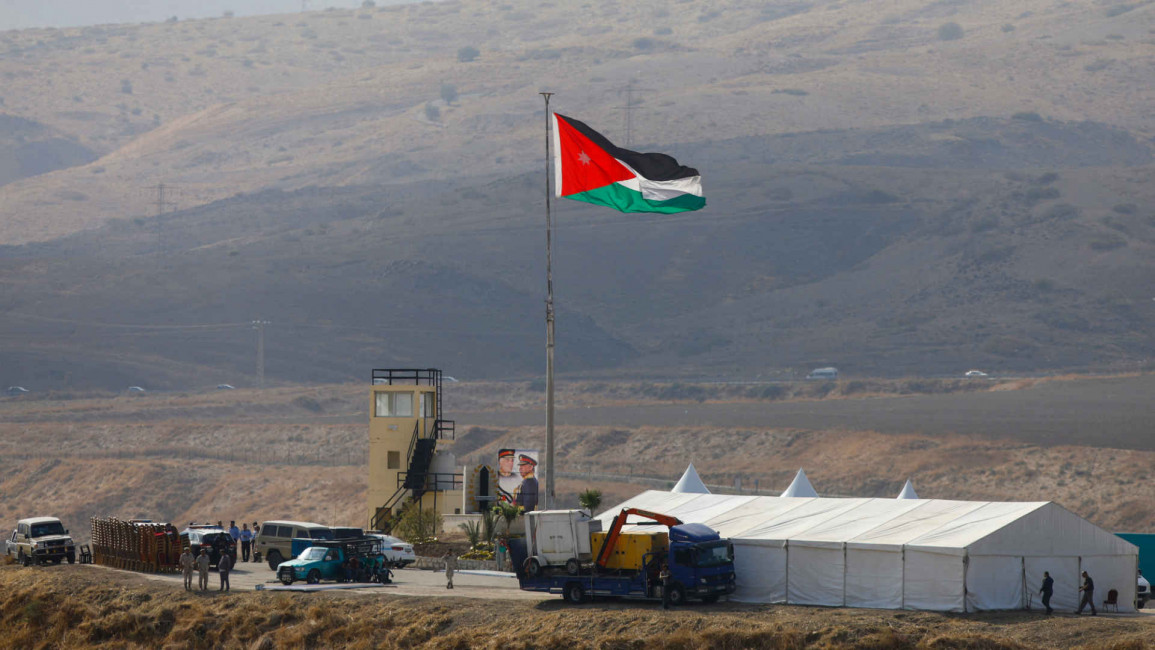Israeli farmers will be allowed to 'harvest once' as Jordan enclave deal expires
Israelis who long grew watermelon, wheat and other crops there braced for financial losses after Jordan declined to renew a clause on the parcels that was part of their 1994 peace agreement.
Jordan said the farmers would be allowed to harvest vegetables from both enclaves - but only once, during the upcoming harvest season, and after obtaining a Jordan visa.
For a quarter-century, Jordan had allowed the Israeli farmers access to the territories of Baqura - also dubbed "the Island of Peace" - in the north as well as Ghumar in the Negev desert south.
But a year ago, Jordan's King Abdullah said his country had notified Israel that it wants the two parcels back.
And on Sunday, in a speech opening parliament, he declared Jordan would reclaim "full sovereignty over every inch of those lands" and announced "the expiration of the Peace Treaty annexes" referring to the two territories.
"Israel regrets Jordan's decision to terminate the annexes," Israel's foreign ministry said in an English-language statement later in the day.
|
Baqura - known in Hebrew as Naharayim, an area that also extends into Israel - lies on a spit of land where the Jordan and Yarmuk rivers meet, in a region of sun-baked brown and yellow hills.
On Sunday, two yellow gates leading to the Jordanian checkpoint were locked with chains. Local officials said Israeli soldiers had shuttered them around 5:00 pm (1500 GMT) the previous day.
On a hilltop on the other side, a Jordanian flag flew above two tents and military vehicles were patrolling the site where a ceremony was expected on Monday.
Strained relations
Residents of the area hope to eventually regain some access to the lands, or compensation from the Israeli government.
"What's most important is the fields, the land," said Ami Kabri, spokesman for the Jordan Valley regional council.
The second enclave, Ghumar, deep in the Negev desert south of the Dead Sea, is known in Hebrew as Tzofar.
The lands were privately owned by Israeli entities for decades, but the 1994 deal saw the kingdom retain sovereignty there.
Since the heady days of Israel's second peace treaty with an Arab state - after Egypt - relations with Amman have been strained.
Opinion polls have repeatedly found that the peace treaty with Israel is overwhelmingly opposed by Jordanians, more than half of whom are of Palestinian origin.
The simmering tensions have been punctuated by bouts of violence.
In 2017, an Israeli embassy security guard in Amman killed two Jordanians.
Three years earlier, an Israeli soldier at a border crossing killed a Jordanian judge he deemed a threat.
Diplomatic row
Just last month, Amman recalled its ambassador from Israel over the prolonged detention without trial in the Jewish state of two Jordanians. The ambassador returned after the two were released.
Hiba al-Labadi, 24, and Abdul Rahman Miri, 32, both of Palestinian descent, crossed into Jordan via the King Hussein Bridge to be greeted by their families, officials and crowds of supporters.
The pair were transferred to the capital Amman for health tests before being allowed to return to their family homes.
Upon their release, the former head of Israeli security Avi Dichter said Al-Labadi and Miri's detention had been due to their links with Hezbollah and Hamas respectively, claiming that their detention had prevented the militant groups from carrying out attacks in Israel.
Dichter added that the pair's release was after a deal was reached between the countries' political leadership.
Follow us Twitter and Instagram to stay connected



